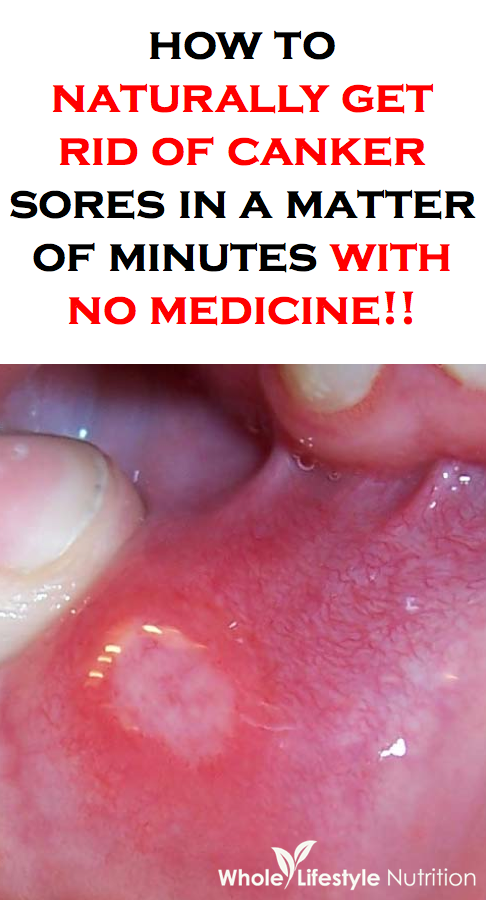12 Canker Sore Remedies For Pregnant Women

The discomfort and pain of canker sores can be particularly challenging for pregnant women, who may face additional restrictions on the medications and remedies they can use. Canker sores, also known as aphthous ulcers, are small, shallow lesions that develop on the soft tissues in the mouth, such as the tongue, inside of the cheeks, and lips. They can be triggered by a variety of factors, including hormonal changes, stress, and certain foods. For pregnant women, finding safe and effective relief is crucial to manage the discomfort and prevent any potential complications. Here, we’ll explore 12 canker sore remedies that are considered safe for pregnant women, along with some essential tips on how to manage and prevent these painful ulcers.
Understanding Canker Sores in Pregnancy
Before diving into the remedies, it’s essential to understand why canker sores might be more prevalent or bothersome during pregnancy. Hormonal fluctuations, particularly the increase in estrogen levels, can affect the mucous membranes in the mouth, making them more susceptible to irritation and ulceration. Additionally, pregnancy can bring about changes in eating habits, stress levels, and oral health routines, all of which can contribute to the development of canker sores.
1. Salt Water Rinse
A simple and effective remedy for canker sores is a salt water rinse. Mix 1 teaspoon of salt in 8 ounces of warm water and swish the solution around your mouth to reduce pain and inflammation. This remedy is completely safe during pregnancy and can be repeated as often as needed.
2. Baking Soda
Baking soda can help neutralize acids in the mouth and reduce irritation. Mix 1 teaspoon of baking soda with water to form a paste, and apply it directly to the canker sore using a cotton swab. Leave it on for a few minutes before rinsing with warm water.
3. Aloe Vera Gel
Aloe vera is known for its soothing properties and can provide relief from the discomfort of canker sores. Apply aloe vera gel directly to the affected area with a cotton swab. Ensure the aloe vera product is pure and free of additives.
4. Cold Compress
Applying a cold, damp washcloth to the canker sore can help reduce swelling and ease the pain. This method is safe and can be used as needed.
5. Topical Anesthetics
Some topical anesthetics, like Orajel or Anbesol, can be used during pregnancy but always consult your healthcare provider before using any new medications, even over-the-counter ones. These products can numb the area, providing temporary pain relief.
6. Yogurt
Eating plain, unflavored yogurt with live cultures can help maintain good oral health and possibly reduce the occurrence of canker sores. The probiotics in yogurt may aid in healing and provide soothing relief.
7. Vitamin and Mineral Supplements
Ensuring you’re getting enough vitamins and minerals, particularly vitamin B12, iron, and folate, is crucial during pregnancy. Deficiencies in these nutrients can lead to the development of canker sores. Consult with your healthcare provider about taking supplements if necessary.
8. Avoid Irritating Foods
Some foods can irritate canker sores or trigger their development. Avoiding spicy, acidic, or sharp foods can help prevent further irritation and allow the sores to heal faster.
9. Stay Hydrated
Drinking plenty of water helps keep your mouth moist and can aid in the healing process of canker sores. Dehydration can exacerbate the discomfort, so staying well-hydrated is essential.
10. Good Oral Hygiene
Maintaining good oral hygiene is crucial. Brush your teeth gently with a soft-bristled toothbrush and fluoride toothpaste, and floss once a day. Avoid using mouthwashes that contain alcohol, as they can further irritate the sores.
11. Chamomile Tea
Chamomile tea bags, when cooled, can be applied to the canker sore to reduce inflammation and promote healing. The anti-inflammatory properties of chamomile can provide soothing relief.
12. Protective Pastes
Over-the-counter protective pastes can be applied to canker sores with a cotton swab. These pastes form a barrier over the sore, protecting it from further irritation and allowing it to heal.
Preventing Canker Sores During Pregnancy
Prevention is key. By maintaining good oral health, avoiding trigger foods, managing stress through relaxation techniques like meditation or deep breathing, and ensuring you’re getting all the necessary nutrients, you can reduce the likelihood of developing canker sores.
When to Seek Medical Advice
While most canker sores heal on their own and are not a cause for concern, if you experience persistent, large, or extremely painful sores, it’s essential to consult your healthcare provider. They can provide guidance on safe treatments and rule out any underlying conditions that may need medical attention.
FAQ Section
What causes canker sores during pregnancy?
+Hormonal fluctuations, stress, and certain foods can trigger canker sores during pregnancy. Ensuring good oral hygiene and a balanced diet can help prevent them.
Are canker sores a sign of an underlying condition during pregnancy?
+Most canker sores are not a sign of an underlying condition, but persistent or severe sores should be evaluated by a healthcare provider to rule out any potential issues.
How long do canker sores typically last during pregnancy?
+Canker sores usually heal on their own within 1 to 3 weeks. Using the remedies mentioned can help alleviate discomfort and possibly speed up the healing process.
Conclusion
Managing canker sores during pregnancy requires a combination of safe remedies, good oral hygiene practices, and a balanced diet. By understanding the triggers and using the outlined remedies, pregnant women can find relief from the discomfort of canker sores. Always consult with a healthcare provider before trying any new treatments to ensure they are safe for use during pregnancy. With the right approach, it’s possible to manage canker sores effectively and maintain good oral health throughout pregnancy.

